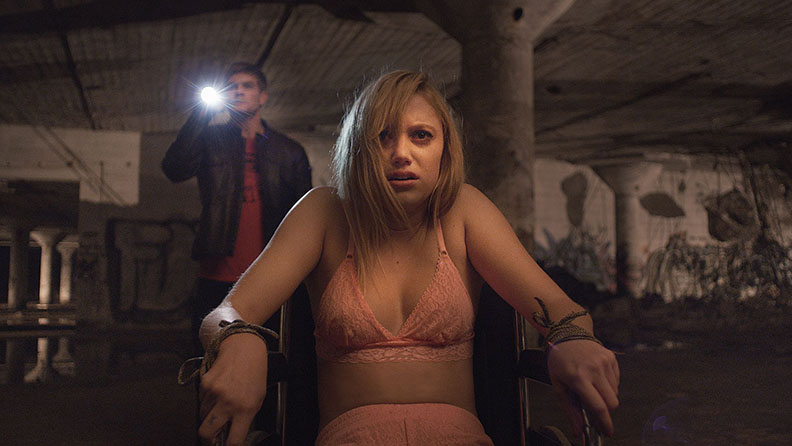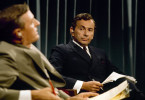It Follows
Director: David Robert Mitchell
(In theaters)
A-
So much of modern horror has been reduced to a series of cheap jumps and contrived shock-value tactics, a trend 20 years or so in the making that managed to suck a lot of the life out of a once artful ilk. The genre arguably peaked in the late ’70s and early ’80s with heavily stylized, blood-curling flicks like Dario Argento’s Suspiria and Stanley Kubrick’s The Shining, movies predicated mostly on the potential perils of the unknown. And the best of horror’s contemporary offerings — The Blair Witch Project, The Others, last year’s The Babadook — were similarly averse to predictable jostles and jolts.
It Follows is this same breed of horror, inducing its pervasive unease through the use of old-school tactics: crafty camerawork, a hair-raising score, and Maika Monroe’s breakthrough performance as the film’s tormented lead actress. It has the look and feel of a work that could have been released at any point in the last 50 years — something writer-director David Robert Mitchell seems keenly aware of, given the prominence of landline phones and TVs with knobs on them — yet its one-of-a-kind premise combats any disposition toward mere homage or some uninspired retread.
Set in suburban Detroit, the film follows a teenaged Jay (Monroe) who, after a sexual encounter with her boyfriend Hugh (Jake Weary), contracts the worst kind of STD: being stalked by naked dead people. Only those who have had sex with someone affected can see these ghastly creatures, who walk slowly yet persistently toward the most recent victim with intent to kill. This supernatural force takes on many faces and arrives when its target least expects it, and the only way to alleviate the haunting is to pass it on to someone else through intercourse. With the aid of her friends, Jay’s struggle is to first acknowledge that it’s real, then to remedy it, then to ultimately destroy it.
That may sound ridiculous on a surface level, but it’s executed with such mastery that it’s nearly impossible to find fault. The notion of there being something out there somewhere that’s going to find you at some point lends itself to a state of constant paranoia, a concept compounded by Mitchell’s brilliant use of backdrop and camera movement. The film is shot almost entirely in deep focus, not just allowing but coercing the viewer to be mindful of what’s happening behind every single frame. And through the use of 360-degree pans and prowling slow-zooms, Mitchell’s camera can, depending on the circumstance, create either full spacial awareness or lull you into complacency.
The synth-heavy score — composed by Rich Vreeland under his Disasterpeace moniker — adds an anxious, retro-horror undercurrent to it all, not unlike that of John Carpenter’s Halloween or the aforementioned Suspiria. Yet the music acquiesces at all the right moments, whether to approaching footsteps or a disquieting youthful whimper, allowing the suspense and anguish of ambience to take hold without relinquishing effectiveness.
Through each of the film’s 100 minutes, Mitchell injects new life into horror by conjuring elements from decades past and applying them to modern-day ideals. It’s one of the genre’s most subtly immersive, if not altogether scariest, films of the last several years, and it accomplished as much with an indie-friendly budget and a cast of relative unknowns. No matter; It Follows is less about the spectacle and more about the experience.





